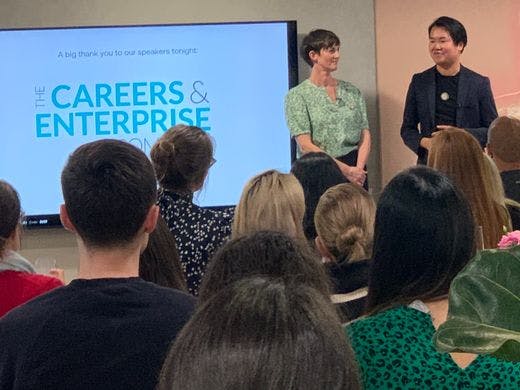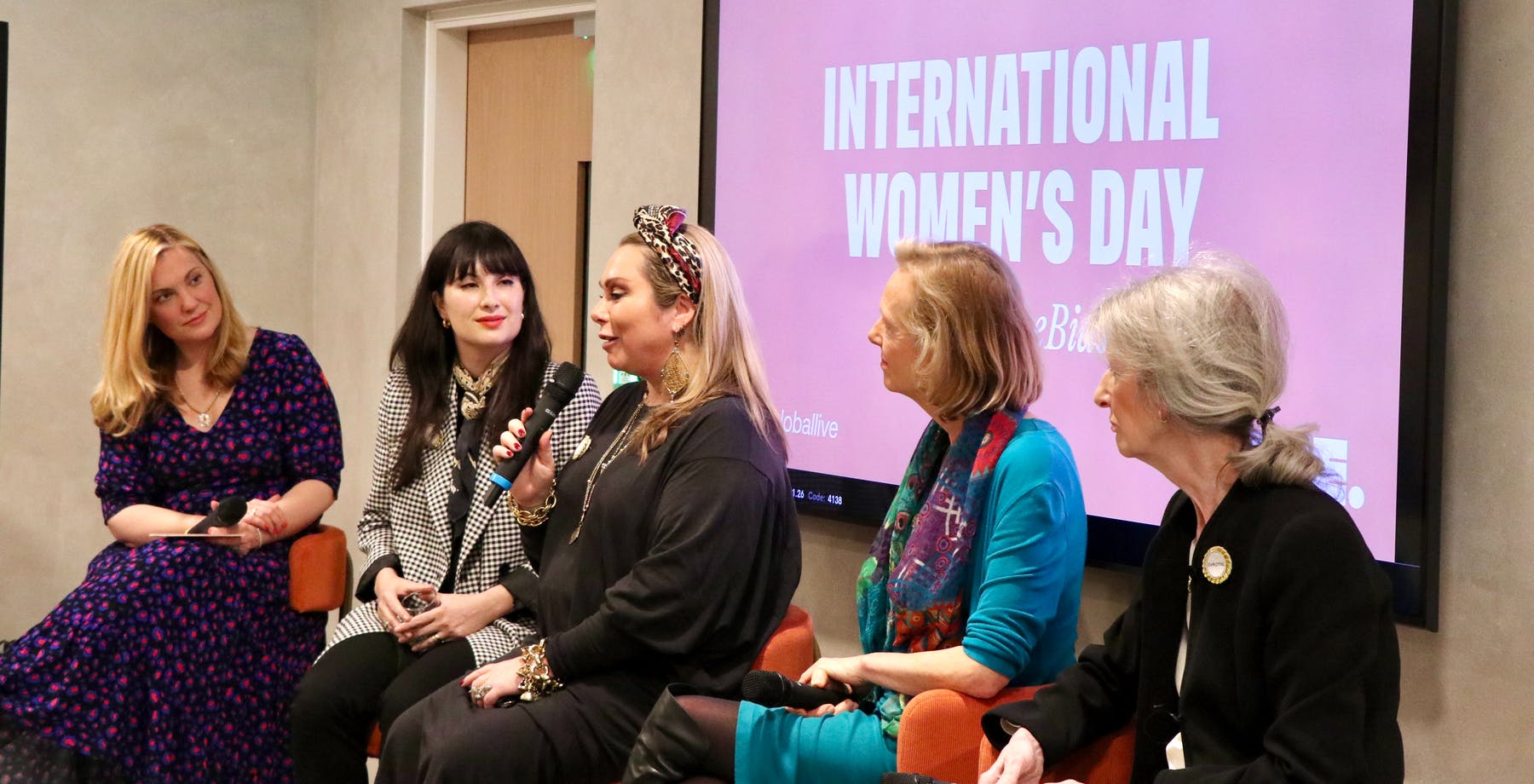Whilst we still consider ourselves to be at the beginning of our own journey, we recognise that we are now of a scale where we can have meaningful, positive influence on the world both within True and via our portfolio businesses. The investment industry we are part of has a long way to go from a diversity perspective, particularly at a senior level. After decades of recruitment policies that have attracted, for the most part, a homogenous group of people with very similar backgrounds, our industry has much work to do; it remains inaccessible to the vast majority of people.
We are passionate about changing this, from the inside. Within our own business, we value the diversity of thought that diversity of background brings and we reflect that in our approach to recruitment. Within our portfolio we look for ways to help our businesses engage more deliberately with young people in local communities, where we think there is a huge opportunity to have a positive impact. Over time, we strongly believe this approach will help us build better businesses and more passionate teams.
With this front of mind, we recently hosted an event at True where we invited Sarah Atkinson, CEO at the Social Mobility Foundation and Anna Frazer who leads on business partnerships at the Careers & Enterprise Company, who we are working with to to help maximise our impact in this area, to talk to our community about the work they’re doing to help support employers in opening up opportunities for all young people.
It was an inspiring evening, and we were delighted with the level of engagement Anna and Sarah generated with our community of leaders, who really wanted to learn more and understand how they could potentially get involved with both organisations. So, if you couldn’t make it, we wanted to ensure that our broader digital community also had access to insights to inspire further engagement and influence real change.
Read on for a Q&A with Anna (Careers & Enterprise) and Sarah (Social Mobility Foundation):
Paul: You both reference a disconnect between certain fields of industry and the education system – why do you think this is happening?
Sarah: I think there’s a lot of assumptions that create this disconnect. On the part of industry, assumptions that the best talent is to be found in a particular group of schools and universities, and that the most polished people make the best hires. Businesses can feel nervous about taking what feels like a risk on someone who presents differently, especially where they are client facing. On the part of the education system, we know there is often a deep-rooted assumption that people from lower socioeconomic backgrounds can’t expect to enter certain sectors and will be disappointed if they aim too high; and there’s real inconsistency when it comes to quality careers advice.
Anna: It's clear business is committed to supporting schools and colleges. They know that by providing opportunities like workplace experiences, they can help young people develop the skills they need and develop and diversify their talent pipelines. Historically, this willingness hasn’t always been supported by a system that allows it to happen effectively. And too often the worlds of business and education have talked past each other about how best to work together. But it is changing fast, and Careers Hubs are a great way for the worlds of education and employment to connect. Careers Hubs bring together schools, colleges, employers, and apprenticeship providers in local areas across England. The goal is to make it easier for schools and colleges to improve how they prepare young people for their next steps.
Paul: Specifically, how do you think the investment / finance industry compares to other industries you work with? Any learnings from other industries that you feel are leading in this space?
Sarah: The finance industry has begun to recognise that the skills you need to be successful might not be found in a narrow group of people – there’s been some great work done to reach out to young people from a broader range of backgrounds and offer opportunities which might inspire them. Unfortunately, there is still a big sticking point around recruitment, where people with huge potential are often screened out because they didn’t go to Russell Group universities, for example, or don’t have lots of work experience. If we look at what’s happening in professional services, for example, some of the big consulting firms have revolutionised their recruitment: no minimum grades, recruiters don’t see candidates' names nor the academic institutions they went to, and selection focuses on skills and aptitude.
Anna: Some sectors such as the finance sector, professional services, construction and engineering have tended to be well engaged in the field of careers education. The construction sector has some great examples of impactful programmes addressing social value requirements of contracts – both in smaller businesses and larger national employers. The legal sector works well collaboratively, aiming to improve access for all young people to the industry. Our Cornerstone Employer groups bring together employers from priority sectors to support a Careers Hub, aiming to spread lessons learned across industries and raise the game everywhere.
Paul: What’s the best way for employers to ensure opportunities aren’t only available to select schools / socioeconomic groups?
Anna: Work with The Careers and Enterprise Company and find your local Careers Hub! We are the national body for careers education in England, supporting schools and colleges to deliver 21st century careers education. Your local Careers Hub engages with local schools and colleges and can steer the efforts of employers and volunteers to where support is most needed based on local data.
Sarah: Make sure you aren’t just engaging with the schools where your employees have connections, or that are local to your business. Targeting schools in areas where there is higher deprivation, or with above average free school meals eligibility, or ring-fencing work experience and internships for young people from lower socioeconomic backgrounds, will ensure that you are offering opportunities to those who won’t otherwise get the chance (and who you would otherwise miss out on). Partnering with charities like the Social Mobility Foundation means employers can offer opportunities to young people who will benefit the most and can access our expert advice in creating effective programmes.
Paul: For employers who know they want to support careers education, where is the best place for them to start?
Anna: Employers can volunteer with a school or colleges on an ad-hoc basis via ‘Give an hour’ and deliver careers activities or host an inspiring experience in the workplace. Or you can partner with a school or college in more depth as an Enterprise Adviser, using business experience and networks to help them develop a strong careers programme.
Paul: What have you been seeing is effective to make real change to young people around the country?
Anna: A collective effort and clarity about how to best add value. Stakeholders have really been pulling together over the past few years and this needs to continue if we want to make further progress and close the gaps. Employers want to know how they can best add value. Our next step is to create Employer standards, setting out clearly and consistently ‘what good looks like’ for employers in careers education. This means all employers will be able to self-assess against the standards, see where they can improve, share best practice, and do more to support young people. Watch this space and get involved!
Sarah: Creating strong links between your outreach activity and your recruitment pipeline so that the young people you’ve engaged with come through into your talent pool; collecting socioeconomic background data and analysing it to focus on where the barriers are and measure the effectiveness of your interventions; and engaging your workforce in mentoring, buddying and other volunteering so they can build relationships with the young people you’re supporting and see the difference they can make. Signing up to the Social Mobility Employer Index means businesses can benchmark their activity and get support and ideas on how to improve, and businesses tell us this has really helped them progress their agenda.
To stay tuned to future updates and progress in this workstream, sign up to our newsletter here.


